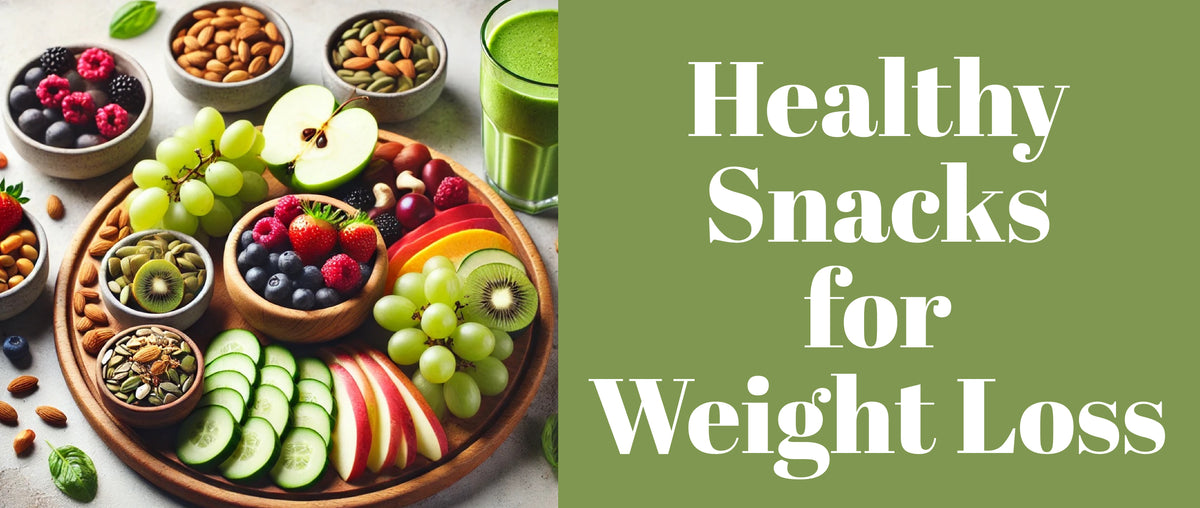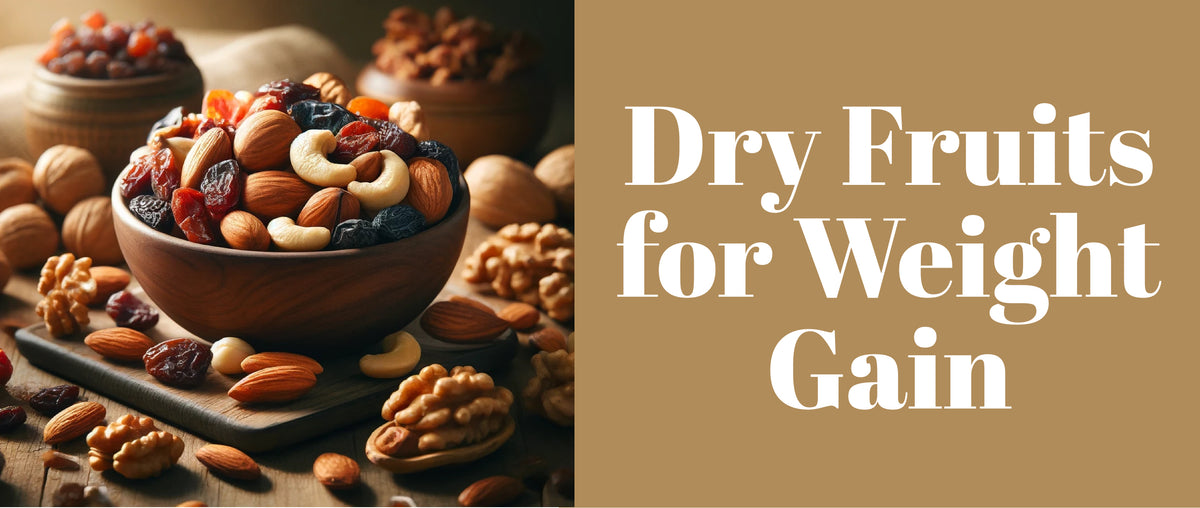Healthy Alternatives to Sugar and Artificial Sweeteners
In today's world, where health consciousness is at an all-time high, the need to find healthier alternatives to sugar and artificial sweeteners has become increasingly important. Excessive sugar consumption is linked to a myriad of health issues, including obesity, diabetes, and heart disease. As people strive to adopt a healthier diet, the search for natural, nutritious alternatives to sugar becomes paramount. In this comprehensive guide, we'll explore various healthy alternatives to sugar and artificial sweeteners, delving into their benefits, uses, and how they compare to traditional sugar.
Key Takeaways
- Natural sweeteners provide a healthier alternative to both sugar and artificial sweeteners.
- Stevia and monk fruit are popular choices due to their zero-calorie content.
- Honey and maple syrup offer additional nutrients but should be used in moderation.
- Health benefits of natural sweeteners include lower glycemic index and fewer side effects.
- Scientific studies support the use of natural sweeteners for better health outcomes.
What is Sugar?
Sugar is a simple carbohydrate that comes in various forms, primarily glucose, fructose, and sucrose. It occurs naturally in many foods, including fruits, vegetables, and dairy products. However, the majority of sugar consumed today is added sugar, found in processed foods and beverages.
- Natural Sugars: Found in whole foods like fruits and vegetables. These sugars come with fiber, vitamins, and minerals, which help mitigate their impact on blood sugar levels.
- Refined Sugars: Processed and added to foods and drinks. These include table sugar (sucrose), high-fructose corn syrup, and other sweeteners.
Is Sugar Bad for You?
Excessive sugar consumption can lead to numerous health problems. While natural sugars in whole foods are generally safe, added sugars can be harmful when consumed in large amounts.
Health Risks of High Sugar Consumption:
- Obesity: High sugar intake is linked to weight gain and obesity.
- Diabetes: Excessive sugar can lead to insulin resistance, a precursor to diabetes.
- Heart Disease: High sugar diets are associated with an increased risk of heart disease.
- Tooth Decay: Sugar contributes to the development of cavities.

Why Consider Alternatives to Sugar?
Given the health risks associated with high sugar intake, finding alternatives is crucial for maintaining a healthy diet. Alternatives can help reduce calorie intake, manage blood sugar levels, and improve overall health.
Benefits of Reducing Sugar Intake:
- Weight Management: Lowering sugar can help with weight control.
- Better Heart Health: Reducing sugar lowers the risk of cardiovascular diseases.
- Improved Mood and Energy Levels: Avoiding sugar spikes and crashes leads to more stable energy.
What Are Sugar Substitutes?
Sugar substitutes are sweeteners used to replace sugar. They can be either natural or artificial. These substitutes can provide the sweetness of sugar without the calories and adverse health effects.
Types of Sugar Substitutes:
- Artificial Sweeteners: Chemically processed sweeteners like aspartame, sucralose, and saccharin.
- Natural Sweeteners: Sweeteners derived from natural sources like stevia, monk fruit, and erythritol.
Should I Cut Sugar from My Diet?
Reducing or eliminating sugar from your diet can have numerous health benefits. While it may be challenging at first, the long-term benefits are well worth the effort.
Benefits of Cutting Down on Sugar:
- Weight Loss: Reducing sugar helps in shedding excess pounds.
- Lower Risk of Chronic Diseases: Decreases the risk of diabetes, heart disease, and certain cancers.
- Better Mental Health: Reducing sugar can improve mood and cognitive function.
Practical Tips for Reducing Sugar:
- Read Labels: Look for added sugars in ingredient lists.
- Choose Whole Foods: Opt for unprocessed foods.
- Use Natural Sweeteners: Replace sugar with healthier alternatives like stevia or monk fruit.
Why You Should Lower Your Added Sugar Intake
Added sugars are sugars and syrups added to foods during processing or preparation. These sugars can significantly impact your health and should be minimized.
Impact of Added Sugars on Health:
- Weight Gain: Added sugars are calorie-dense and contribute to weight gain.
- Increased Risk of Disease: High intake of added sugars is linked to heart disease, diabetes, and liver disease.
Identifying Added Sugars in Foods:
- Common Names: Look for names like corn syrup, high fructose corn syrup, cane sugar, and agave nectar.
- Nutrition Labels: Check the sugar content on nutrition labels.
Common Artificial Sweeteners
Artificial sweeteners are synthetic sugar substitutes. They are many times sweeter than sugar but contain few or no calories.
Types of Artificial Sweeteners:
- Aspartame: Used in diet sodas and sugar-free products.
- Sucralose: Found in products like Splenda.
- Saccharin: An older artificial sweetener used in many diet products.
- Acesulfame K: Often combined with other sweeteners in processed foods.
Health Concerns with Artificial Sweeteners
While artificial sweeteners are FDA-approved, some studies suggest potential health risks. It's essential to understand these risks before incorporating them into your diet.
Potential Side Effects:
- Digestive Issues: Some people experience bloating and gas.
- Metabolic Effects: Studies suggest artificial sweeteners may affect metabolism and increase appetite.
- Regulatory Stance: While generally considered safe, ongoing research continues to examine long-term effects.
Natural Sweeteners as Alternatives
Natural sweeteners are derived from plants and provide a healthier alternative to both sugar and artificial sweeteners. They often contain additional nutrients and have a lower glycemic index.
Popular Natural Sweeteners:
- Stevia: Extracted from the leaves of the Stevia plant, it's calorie-free and much sweeter than sugar.
- Monk Fruit: A small green gourd that provides a sweet extract without calories.
- Erythritol: A sugar alcohol found in fruits and fermented foods.
- Xylitol: Another sugar alcohol, often used in chewing gums and oral care products.
- Honey: A natural sweetener with antioxidants and antibacterial properties.
- Maple Syrup: Derived from maple tree sap, it contains minerals like calcium and potassium.
- Coconut Sugar: Made from the sap of coconut palms, it has a lower glycemic index than regular sugar.
- Date Sugar: Made from ground dried dates, it's rich in fiber and nutrients.
Nutritional Comparison of Natural Sweeteners
| Sweetener | Calories per Teaspoon | Glycemic Index | Nutritional Benefits |
|---|---|---|---|
| Stevia | 0 | 0 | Zero calories, may help lower blood pressure and blood sugar. |
| Monk Fruit | 0 | 0 | Zero calories, contains antioxidants. |
| Erythritol | 0.2 | 1 | Low calorie, does not affect blood sugar levels. |
| Xylitol | 10 | 13 | Low calorie, good for dental health. |
| Honey | 21 | 58 | Contains vitamins and antioxidants. |
| Maple Syrup | 13 | 54 | Contains minerals like calcium and potassium. |
| Coconut Sugar | 15 | 35 | Contains trace amounts of vitamins and minerals. |
| Date Sugar | 15 | 46 | High in fiber and nutrients. |
Benefits of Natural Sweeteners
Natural sweeteners offer numerous benefits over refined sugar and artificial sweeteners. They provide sweetness without the health risks associated with sugar and have additional nutritional value.
Key Benefits:
- Lower Glycemic Index: Helps maintain stable blood sugar levels.
- Nutritional Value: Contains vitamins, minerals, and antioxidants.
- Fewer Side Effects: Generally well-tolerated with fewer digestive issues.
How to Use Natural Sweeteners in Cooking and Baking
Natural sweeteners can be used as a one-to-one replacement for sugar in most recipes. However, some adjustments may be needed to achieve the desired sweetness and texture.
Substitution Ratios:
- Stevia: Use sparingly; a small amount goes a long way.
- Monk Fruit: Can be used similarly to stevia.
- Erythritol: Replace sugar one-to-one, but may need additional moisture in recipes.
- Xylitol: Replace sugar one-to-one, good for baking.
- Honey: Use 3/4 cup of honey for every cup of sugar and reduce other liquids.
- Maple Syrup: Use 3/4 cup for every cup of sugar and reduce liquids.
- Coconut Sugar: Use one-to-one as a substitute for brown sugar.
- Date Sugar: Replace sugar one-to-one, but be mindful of texture changes.
Tips for Best Results:
- Taste Test: Adjust sweetness to taste during preparation.
- Texture Adjustments: Some natural sweeteners may alter the texture of baked goods.
- Moisture Balance: Add extra moisture if using dry sweeteners like erythritol or date sugar.
Scientific Studies on Natural Sweeteners
Numerous studies have explored the health benefits and potential risks of natural sweeteners. These studies generally support their use as healthier alternatives to sugar.
Summary of Research Findings:
- Stevia: May help lower blood pressure and blood sugar levels.
- Monk Fruit: Contains antioxidants and has anti-inflammatory properties.
- Erythritol: Safe for people with diabetes and does not affect blood sugar.
- Xylitol: Beneficial for dental health and safe for people with diabetes.
- Honey: Contains antioxidants and has antimicrobial properties.
- Maple Syrup: Contains antioxidants and may have anti-inflammatory effects.
- Coconut Sugar: Lower glycemic index and contains trace nutrients.
- Date Sugar: High in fiber and nutrients, may aid in digestion.
What Is the Best Alternative to Sugar?
The best alternative to sugar depends on individual health goals and preferences. Each natural sweetener offers unique benefits and can be chosen based on specific needs.
Evaluating the Best Options:
- For Calorie Reduction: Stevia and monk fruit are excellent zero-calorie options.
- For Nutritional Benefits: Honey and maple syrup provide additional nutrients.
- For Diabetics: Erythritol and xylitol are safe and do not spike blood sugar levels.
Natural Alternatives to Refined Sugar
Refined sugar lacks nutrients and can negatively impact health. Natural alternatives are a healthier choice and can be easily incorporated into daily diets.
Exploring Natural Alternatives:
- Stevia and Monk Fruit: Best for zero-calorie sweetening.
- Honey and Maple Syrup: Great for added nutrients and flavor.
- Coconut Sugar and Date Sugar: Lower glycemic index and rich in nutrients.
Double Your Impact on Fighting Cancer
Reducing sugar intake and incorporating natural sweeteners can help lower cancer risk. Scientific studies suggest that high sugar consumption can promote cancer cell growth.
Supporting Evidence:
- Lowering Sugar: Reduces insulin levels, which can inhibit cancer cell growth.
- Antioxidant Properties: Natural sweeteners like honey and maple syrup contain antioxidants that combat oxidative stress.
So, What Are Some Sweet Ways to Stay Healthy?
Incorporating natural sweeteners into your diet can help satisfy your sweet tooth without compromising your health.
Practical Tips:
- Sweeten Your Beverages: Use stevia or monk fruit in Healthy Drinks like tea and coffee.
- Healthy Baking: Substitute sugar with natural sweeteners in baked goods.
- Dressings and Sauces: Use honey or maple syrup to add a touch of sweetness to dressings and marinades.
- Snacks: Make Healthy Snacks for Kids using natural sweeteners like date sugar or coconut sugar.
Conclusion
Switching to natural sweeteners is a beneficial step towards a healthy diet. These alternatives offer the sweetness of sugar without the associated health risks. By incorporating natural sweeteners, you can enjoy your favorite foods while maintaining better health and well-being.
Do you enjoy vegan food? We have a list of vegan restaurants in India to help you find delicious options in your area!










